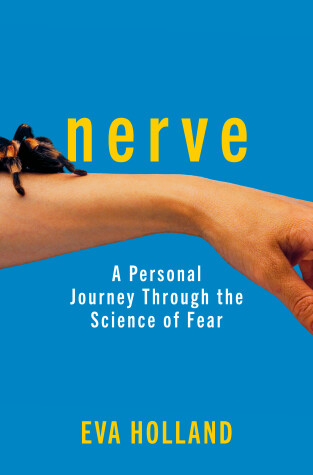Reviewed by annieb123 on
Nerve is an interesting book which is something of a hybrid between non-fiction science and memoir by Eva Holland. Released 14th April 2020 by The Experiment, it's 256 pages and available in hardcover, audio, and ebook formats.
The book is split into three interwoven and related parts. The first part is a moving personal account of the author's experiences with situational phobias in her own life and how it was inextricably tied to emotional trauma. She has a sure and deft voice and she expresses it with a touching vulnerability and strength. The second part of the book is an account of her journey toward grabbing her own fear of falling, of heights, of loss of physical control, and taking control of it and learning to minimize its effects on her life by doing the exact things of which she was most afraid. The third part of the book (and the one which completely sucked me in) is the layman accessible examination of the physiological science behind fear and fear reactions. I learnt quite a lot from these chapters about the body's response to fear (both rational and irrational) and the emotional responses to the physiological reactions.
There are some parts of the book which I found almost excruciating to read. The author is quite gifted at realistically depicting the terror of a full blown panic attack and it makes for both enlightening and difficult reading. The author has provided a superb bibliography and reading list with annotations for each chapter for readers who are interested in further exploration of the subject.
This is not a how-to-fix-your-fears handbook; the author has not provided medical advice. It is, however, a compelling and interesting look at the author's experiences with her own phobia in her own life.
Four stars.
Disclosure: I received an ARC at no cost from the author/publisher for review purposes.
Reading updates
- Started reading
- 2 May, 2020: Finished reading
- 2 May, 2020: Reviewed
